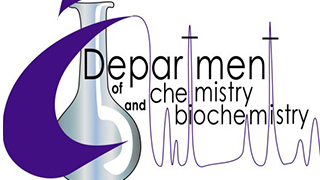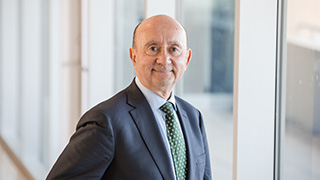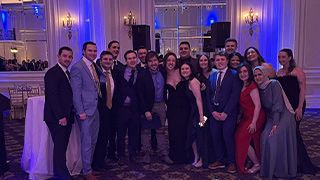Chemistry Seminar by Fr. Gerald Buonopane
Wednesday, February 15, 2017

The seminar will take place in the Helen Lerner Amphitheater, Science and Technology Center, Seton Hall University at 5:45 P.M. on Tuesday February 21, 2017. Refreshments are available at 5:30 PM.
This interdisciplinary research project, which focuses on the emerging field of plasma agriculture, seeks to better understand the chemical and physical effects of cold plasma processing on plants and their essential oils. Cold plasma processing has been shown to be a rapid, economical, and pollution-free method to improve plant seed performance and crop yield. Essential oils are aromatic oily liquids extracted from different parts of plants, such as the leaves, flowers, and roots. Among the various beneficial properties of essential oils is their demonstrated antioxidant effect directly applicable to foods that are prone to oxidative consequences such as poor flavor, bad odors, and spoilage. Antioxidants, either synthetic (e.g., butylated hydroxytoluene, BHT) or natural (e.g., Vitamin C), are routinely added to processed foods to inhibit or delay oxidation. Essential oils are examples of natural antioxidants. Although synthetic antioxidants like BHT and BHA (butylated hydroxyanisole) are very effective, they have been shown to be potentially harmful to human health with demonstrated evidence of causing cancer in laboratory animals. As a result, food scientists have been seeking alternative natural compounds as substitute antioxidants, such as essential oils. We have observed a growth effect in our preliminary studies treating basil plants with cold plasmas. We have also observed that plasma treatment increases the antioxidant activity of essential oils. Our preliminary work further revealed a difference in the composition of individual antioxidant components between the plasma-treated and non-plasma-treated basil. In follow-up studies, we seek to better understand cold plasma's physical and biochemical-molecular effects on basil plants.
Ordained as a priest of the Archdiocese of Newark in 2006, Fr. Gerry's area of specialization is food chemistry. He earned a B.S. in Biology from Northeastern University (1978), a M.S. in Nutritional Science from the University of Connecticut (1981) and a Ph.D. in Food Science from Penn State University (1988). Prior to seminary and the priesthood, Fr. Gerry held a number of positions in academia, the federal government (USFDA), and in the food and pharmaceutical industries. His research areas of interest are: Chemical Deterioration of Food Lipids: Oxidative Reactions; Essential Oils as Natural Antioxidants; and Cold Plasma Treatment of Botanicals and Essential Oils.
Dr. Cosimo Antonacci holds BS and PhD degrees in Chemistry from Seton Hall University. He is currently Undergraduate Laboratory Manager in the Department of Chemistry and Biochemistry, where he supervises all activities in the department's teaching laboratories. He is an active researcher in biochemistry with ongoing collaborations in Biochemistry, Biological Sciences and Physics.
Professor Jose L. Lopez is an Associate Professor in the
Department of Physics at Seton Hall University in South Orange, New
Jersey, USA. He earned a B.S. in Physics from Saint Peter's University
in Jersey City, New Jersey in 2000, an M.S. in Physics in 2003 and a
Ph.D. in Physics in 2006 from the Stevens Institute
of Technology in Hoboken, New Jersey.





